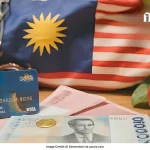Digital Payments vs. Physical Cash: In an era marked by technological advancements, financial transactions have undergone a major transformation. As Indian students pursue education abroad, the choice between digital payments and physical cash becomes an important decision that impacts their safety, convenience, and financial well-being.
Most of the payments today are done through online modes like card payment, transfer through apps, UPI etc. Cash payments, on the other hand, take more time but are accepted worldwide. These transactions are mostly safe, secure and fast. Let’s check all the factors which should be considered while deciding the mode of payment.
Table of contents
Advantages of Digital Payments
Digital payments provide an additional layer of security through encryption and authentication processes. This reduces the risk of theft or loss of money. Most digital platforms also offer fraud protection, ensuring that unauthorized transactions are promptly identified and addressed. Also, you will be able to keep track of all transactions made in a particular period. If you consider cash also, as per the Liberalised Remittance Scheme, you may face issues if you carry a huge amount of cash with you abroad.
Check the major advantages below:
- Convenience and Accessibility: With digital payment methods, students have the convenience of managing their finances from anywhere with an internet connection. Mobile wallets and banking apps make it easy to monitor transactions, pay bills, and transfer money seamlessly.
- Trackability: Digital transactions leave a digital trail, allowing students to easily track their spending and maintain a transparent record of their financial activities. This feature can be invaluable for budgeting and financial planning. Also, if there is any kind of issue with the transaction, you will have proof to show all the details.
- Contactless Transactions: Amid global health concerns, the contactless nature of digital payments has gained significance. Students can make transactions without the need for physical contact, minimizing the risk of exposure to viruses or bacteria.
Also Read: Planning to apply for a Forex card for transactions abroad? Check this blog on Yes Bank Forex Card
Advantages of Physical Cash Payment
One of the most important benefits of cash payment is that it will be accepted everywhere, especially in remote areas. In certain regions of developing countries, physical cash may be the preferred mode of transaction. Having some cash on hand can be beneficial in situations where digital payment options may not be readily available. Let’s check some major advantages of physical cash payment:
- Budget Management: Many students find it easier to manage their budget with physical cash. The tangible nature of money can make it more apparent how much is being spent, helping students stay within their financial limits. They find it more efficient to keep cash handy for upcoming expenses in a month or a week.
- No Additional Charges: When you transact in cash, you don’t need to pay any kind of additional charges or transaction fees. Online payments will attract a certain fee on the number of transactions like maintenance fees, annual charges, withdrawal charges etc.
- Immediate Transaction: Cash payment can be settled quickly as there is no third party involved. For example, if you are paying USD 100 online to someone, you need a phone, an internet connection, and a payment app. If there is any issue with the internet or the payment, it will consume unnecessary time and effort.
Digital Payment Vs Cash Payment: Which is Better?
Deciding the mode of payment depends on a lot of factors like the amount needed to pay, acceptance of cash, guidelines by the monetary authorities etc. For small payments, cash can be efficient but if the amount is huge, it is required to be paid online in order to track the transaction and keep a record for legal obligations. Check some of the major factors of both the payment modes:
| Digital Payments | Cash Payment |
| Dependency on Technology | Direct and Fast Payments |
| Attract Transaction Charges | No Additional Cost |
| Suitable for Large Payments | Suggested for Small Payments |
| Easy to Track | Tracking Can Be Difficult |
| Evidence of Payment Can Be Recorded | Difficult to Keep Evidence |
| Safe and Secure Payments | Risk of Loss or Theft |
| Easy to Carry | Less Convenient to Carry Large Amounts |
Important Guidelines for Monetary Payments
While both payment modes have their own set of advantages and disadvantages, it is very important to analyse the requirements. For small and quick payments, physical cash is suggested as it doesn’t involve any transaction charges and is accepted at every place. Check some important guidelines that you should keep in mind while making payments:
- Always use online payments for bigger transactions as you will be able to keep a record of the payments which can be used as proof and reference.
- Always keep some cash with you for unprecedented situations especially if you are in a rural or remote area.
- While making online payments, use trusted and recommended payment gateways to ensure complete security.
- If anybody is insisting on cash payments for larger amounts, try to avoid the same and refer to the legal guidelines by the monetary authorities or the government of the particular country.
Also Read: Do you want to use a Forex card issued by the public sector bank? Here’s the required information. Check all about SBI Forex Card
FAQs on Digital Payments vs. Physical Cash
Cash payments are good when you make small transactions while online payment is suggested for transactions that involve bigger amounts.
It depends on the country where you are staying. In India, payment apps like Paytm, PhonePe, Bharat Pay etc are good for quick transactions. However, if you are in a foreign country you can use your banking app or Forex card for transferring money.
Card payments may attract additional fees subject to the use limit prescribed by the bank. Check with your card issuer for a schedule of charges. Banks may charge card maintenance fees annually.
Banks like SBI, Union Bank etc allow 4 free transactions in a month for cash withdrawals through an ATM. Go through the terms and conditions prescribed by your bank.
Online payments are the safest mode of payment as you can keep track of all the expenses. Always use trusted payment getaways that are regulated by the government or the central bank of the country.
The choice between digital payments vs. physical cash for Indian students studying abroad ultimately depends on individual preferences, lifestyle, and the specific circumstances of their host country. While digital payments offer enhanced security, convenience, and trackability, physical cash can still be relevant in certain situations.
To know more about the payment modes, loan application process, the best international bank accounts for students, forex and banking experience for global students or international money transfers, reach out to our experts at 1800572126 to help ease your study abroad experience.
| Related Blogs |
| FAQs on Forex Prepaid Cards for Students |
| FAQs on Currency Exchange for Students |
| YONO SBI Education Loan to Study Abroad |
Follow Us on Social Media





























